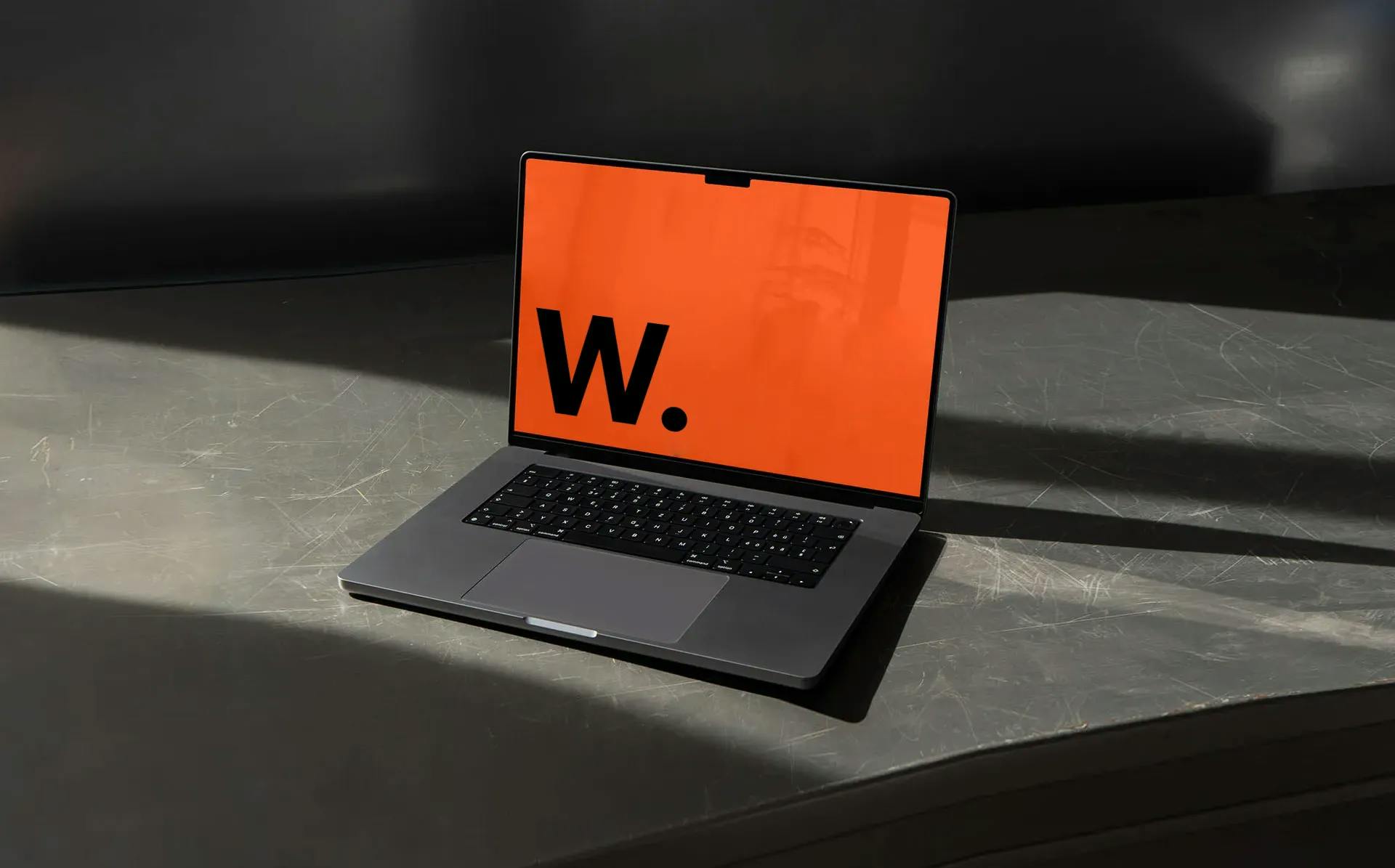We have been made aware of unauthorized use of our company name in fraudulent activities. Fleava only operates through fleava.com. Any other domains or contacts claiming to represent us are fraudulent.
If you receive suspicious messages, do not engage—report them to the authorities. For official inquiries, contact hello@fleava.com.
The Influence of a Website on Your Business
/ Journal — Insight: Marketing
A website is a group of interconnected, publicly accessible web pages with a common domain name. A website can be developed and maintained to serve a variety of objectives by an individual, group, company, or organization. The World Wide Web is made up of all websites that are open to the public.
Websites come in a virtually limitless range, including e-commerce sites, news sites, forums, commercial sites, and educational websites. A website's pages typically contain both text and other types of media. Nevertheless, the design of a website is not constrained by any rules. A website is a group of interconnected, publicly accessible Web pages with a common domain name. A website can be developed and maintained to serve a variety of objectives by an individual, group, company, or organization. The World Wide Web is made up of all websites that are open to the public.
Reasons Why Website is Important
1. Brand Awareness
A website promotes your brand to potential clients, customers, and aids in brand awareness. By letting the audience know who you are and what you stand for, you can establish your image. A website gives users trustworthy information, which helps your firm stand out from the competition.
2. Enhance Credibility
Increasing your company's credibility is one of the key benefits of having a website. Most of the time, your items or services are competitively offered by a number of companies in the market. The greatest approach to differentiate yourself from the competition is to have a stylish and expert website. A strong online presence is created and quality information is communicated to your customers with the help of an effective website.
Today, a company's validity might be questioned if it doesn't have a website. Customers anticipate that reputable companies will have websites and social media accounts. A website serve as the public face of your company. It aids in making a good first impression and increases consumer trust and confidence.
3. You Receive Lasting Value
A website's amazing feature is that, once you invest in it, you own it permanently and it keeps doing your bidding. What other forms of advertising are there that, after a single investment, last a lifetime for your company? hardly any.
When you purchase a newspaper advertisement, you receive it and any benefits it brings about, but after that, it is over. You will never be able to recoup the money you used to purchase the newspaper advertisement. You will never be able to if you don't get a return on your investment. The same is true for Linkedin, Yellow Pages listings, magazine ads, Facebook, Google Adwords, and other advertising platforms. With a website, though, you don't have to worry if you don't see a return on your investment in the first year because you have till the end of time to do so. have a website that is both sales-driven and search engine optimized.
"A website's amazing feature is that, once you invest in it, you own it permanently and it keeps doing your bidding"
4. Bring in Organic Traffic
There are extremely good odds that your website will rank well in the Google search results if you have created one employing various search engine optimization tactics.
When someone searches online for a good or service like yours, showing up high in the search results will make sure they can see your website and visit it for additional details. You'll have the chance to grow your customer base as a result of this.
5. It Provides Chances to be Known Abroad
Having a website allows anyone in the world to find your company. You can significantly expand your consumer base if you have products that are easy to offer online. By having a website, you can attract clients who live outside the areas covered by your marketing efforts and increase the opportunity to increase sales of your products and services overseas.
6. Digital Marketing
Increase traffic to your website or landing page if you are developing a digital marketing strategy to expand your business. To attain your digital marketing objectives, consider utilizing past website traffic. You may target the most qualified clients this way and maximize the return on your advertising investment. This cannot be done after the fact; you must have a functioning website before you consider running online advertisements.
7. Portfolio
Don't restrict the content of your website to solely services or product sales. Make a portfolio that demonstrates your success in the industry. Let's imagine that travel and tourism are the focus of your company. You can make a family's entire travel experience, from reserving tickets to arriving at the location, as well as the arrangements your company made for them, into a video portfolio. You can ask them to provide feedback in video form, which you can then include in the portfolio. These portfolios aid in gaining customers' faith in your company.
8. Growth Possibility
A company's portfolio or resume can be found on its website. Businesses may find this advantageous as it serves as a resource for possible investors who can learn about your services, your accomplishments to date, and your future objectives as an organization before making an investment decision.
"Having a website allows anyone in the world to find your company"
Reasons Why Having a Mobile Friendly Website is Important
Because mobile-friendly websites are the way of the future in web design, that is the main reason why you need to have a website mobile-friendly for your business. Desktops are being used less and less every day, and using mobile is an easy way to find the information you are looking for. You should participate in a new wave of connectivity brought on by the growing use of cell phones.
"Mobile-friendly websites are the way of the future in web design"
We will help you to discover the reasons why you need mobile-friendly website, and here are some of them:
1. Accessibility
Due to the ease of accessibility that surrounds a mobile-friendly design, this website can certainly increase your sales and conversions. A mobile-friendly website allows users to interact and engage with your business across devices conveniently and without interruption. This initial investment in accessibility improvements is critical to driving long-term loyalty and customer retention.
2. Cost-effective Techniques to Boost SEO
The potential to boost overall sales and conversions is the main justification for having a mobile-friendly website. Mobile-friendly websites are vital to maintain top SEO ranks since Google's algorithms give them priority.
In the end, a mobile-friendly website is a wise investment that, when used properly, may yield noticeable results. Mobile-friendly websites are unquestionably the future of web design, whether you look at it from a short- or long-term viewpoint, and businesses that invest in these technologies early on see the most long-term success.
3. Gaining Trust and Credibility
Customers should be aware that they may access your brand whenever they want and that you are a reputable, genuine, and trustworthy company.
One of the best methods to create the trust you want to have with your target audience is to have a mobile-friendly website. By reinventing your product offerings to meet and surpass users' expectations, you demonstrate to both potential and current customers that you are adaptable, versatile, and responsive to their needs. The consumer journey becomes more seamless and exudes authenticity and trust as a result.
"Credibility is the result of your commitment"
Importance of a Good Website for Your Business
One of the most crucial components of your online branding presence is your website, so it's critical that you design it well. Your website should be created with your audience in mind and should guarantee a positive user experience. You must make sure that your website functions properly. A good user experience can have a positive effect on SEO and end up gaining consumer trust. There is no gain whatsoever if a website is broken. Furthermore, it is a major turnoff for potential clients if some components of your website are broken.
Ensuring that everything functions on the back end takes up the majority of the time spent creating a website. The website should be developed so that the applications on it can be used, the coding is functional throughout, and there are no broken links. The checkout interfaces, interactive section, and videos should all be in order. The website ought to be hosted on a server that can manage all of those things as well.
When using ready-made website generators, a lot of features can be added, but you can't be sure if they'll function properly. When you build a website quickly, you don't prepare yourself to handle the things that your site might require in the future.
Also read: All about Building a Website: The Window to Your Business"
The Benefits of Website Optimization
The act of improving your website's performance in a number of areas, namely online traffic, conversion rate, and usability, is known as website optimization. By enhancing this, It becomes an ideal environment for website users to become satisfied and loyal clients. It takes consistency and effort to manage and maintain a website to function properly and have engaging content. This can seem like a huge achievement if your company has a number of large and complex websites.
The advantages of optimizing your website are vast and include all available methods. The following are some of the advantages of website optimization:
1. Increase Traffic
Optimizing the content on the website will certainly improve SEO, making it easier for people to find your material naturally through search engines
2. Increase brand recognition and exposure
Having additional opportunities to promote your business, and make your brand more recognizable by engaging a larger and appropriate audience through related content is another advantage of increasing traffic.
3. Improve the brand experience and reputation
Your consistent, user-first website experience also enhances the perception of your company. Since your website serves as an extension of your brand, happy visitors can become loyal supporters of your business.
Why do Small Businesses Need a Website?
Consumers have been actively encouraged in recent years to "buy local" and support small businesses, and the internet greatly facilitates this. Many entrepreneurs view having an online presence and marketing to customers outside of their immediate area as a tremendous chance to expand their enterprises. Every small business should have a website for all of these factors. Let's examine in more detail the reasons your company requires a website:
1. It Verifies That Your Company Actually Exists
In today's digital era, a small business needs a website to boost sales. The company website serves as an entryway, front door, and welcome mat. On the website, we need to educate as well as evoke the emotions of the audience. Without a website, you lose most, if not all, of your potential customers because they won't be able to find any information about you or your company's products.
"The company website serves as an entryway, front door, and welcome mat"
2. Prospective Customer Could Find Your Business on Google
People use Google to find almost anything and everything in today's digital environment. everything from solutions to inquiries to nearby products and services. For businesses to succeed online, search engines are crucial. Potential clients won't be able to locate you in searches if you don't have a website. Making a central spot to keep your address, phone number, contact form, list of goods and services, prices, etc can make it easier for customers to locate your company online.
3. Improve Credibility
Your company's credibility is increased by having a website. You won't be able to convert as many sales as you would if your company did not have a more reliable online presence in the modern world if you don't have a website. Customers will look you up online, and having a website is one factor in judging your credibility.
4. Branding and Digital Marketing
Branding and Digital Marketing serve as the hub for all of your marketing and commercial communications. It serves as a resource for potential customers to learn more about your company. Additionally, all of your other marketing initiatives should direct potential clients there. Your website gives you the power to inform potential consumers and clients about who you are, what you do, and why. This is of utmost importance in terms of developing and promoting your brand.
Also read: Your Guide to Branding and Why it Matters
5. It Enables Competition on a Bigger Scale
For the same reason you plant a seed, every company ought to have a website. The first step to putting your business in a position where it can succeed is getting a website. It enables you to advertise your goods, establish a reputation, set yourself apart from the competition, and quite frankly, compete with huge companies. These days, if you are not online, you are not competitive and you are missing out on chances, even from devoted clients. Customers will look elsewhere if they can't discover you.
"These day, if you are not online, you are not competitive"
Website Design Trend
1. Scrolling Effect
Visitors may be stimulated and persuaded to browse further by the scrolling effect. A more dynamic web experience can be produced via scrolling effects, which are animations started by scrolling actions. It is increasingly being utilized on interactive websites to generate three-dimensional experiences, signal content breaks, and keep users interested in scrolling. It is made utilizing a mix of vertical and horizontal scrolling as well as other effects.
2. Retro Typography
Retro typography can make web users feel nostalgic and emotional. For their homepage titles, more and more businesses are opting for big, bold typography with a retro feel. Short words, with the rest of the page, kept simple and neat, look really good this way.
It is a component of the larger "Neue Nouveau" movement. The Art Nouveau movement, characterized by ornate motifs, delicate finishes, and diagonal and triangular character shapes is called Neue Nouveau. Some of these same traits and characters with similar forms and developments can still be seen in today's typography.
3. Cinemagraphs
Cinemagraphs can help draw visitors' attention around the page, even in the most complex layouts. Cinemagraphs — high-quality videos or GIFs that run in a smooth, continuous loop — have become a popular way to add motion and visual interest to static pages.
While full-screen loops were popular in the past, this year you'll see smaller cinemagraphs incorporated into complex layouts to help grab attention and keep readers scrolling.
4. Brutalism
Brutalism in web design is distinguished by its experimental nature and crude or raw appearance. This style goes against the trend of web design in general. Some website designers opt for a less electric, bold, and unconventional structure to stand out in a sea of neat and structured websites. While it may come as a surprise at first, several well-known companies, including Bloomberg, have implemented this very unconventional aspect of design into their websites. Brutalism is often characterized by a prominent, asymmetrical appearance, non-conformist graphics, and a clear absence of hierarchy and order. It was first developed as a reaction to the increasing standardization of web design.
5. College Art
Print media, notably periodicals and newspapers, served as the foundation for this online design trend. It is referred to as a design work produced as a component of modern art by integrating disparate flat elements such as pictures, newspapers, ripped paper or cardboard, paper tags, printed messages, etc. College art is quite well-liked due to its versatility and attractive appearance. Designers might construct a collage that reflects their company using a variety of artistic methods.
6. 3D Website
The method of using computer modeling software to construct objects in three dimensions is known as three-dimensional design. As a result, the item itself has three key values configured to determine how it is located in the room.
Many different businesses, such as animation, gaming, interior design, and architecture, rely heavily on 3D modeling. You can design realistic scenes in 3D design. Photographic backgrounds and computer-generated objects can enhance the illusion.

